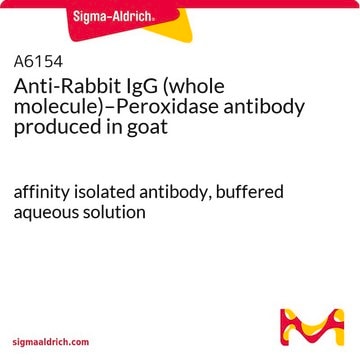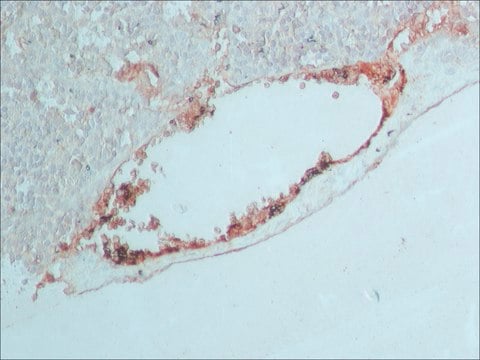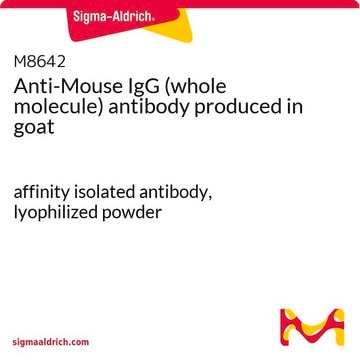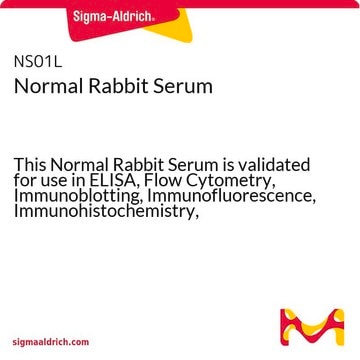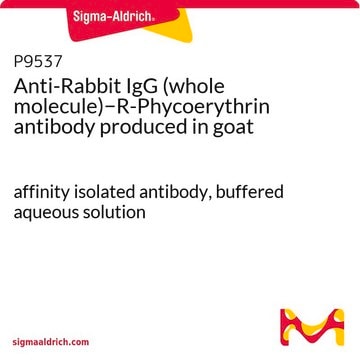R2004
Anti-Rabbit IgG (whole molecule) antibody produced in goat
affinity isolated antibody, lyophilized powder
Synonyme(s) :
Whole antibody
About This Item
Produits recommandés
Source biologique
goat
Niveau de qualité
Conjugué
unconjugated
Forme d'anticorps
affinity isolated antibody
Type de produit anticorps
secondary antibodies
Clone
polyclonal
Forme
lyophilized powder
Technique(s)
immunoelectrophoresis: suitable
Température de stockage
2-8°C
Modification post-traductionnelle de la cible
unmodified
Vous recherchez des produits similaires ? Visite Guide de comparaison des produits
Description générale
Spécificité
Application
Western Blotting (1 paper)
Actions biochimiques/physiologiques
Forme physique
Reconstitution
Clause de non-responsabilité
Vous ne trouvez pas le bon produit ?
Essayez notre Outil de sélection de produits.
Code de la classe de stockage
11 - Combustible Solids
Classe de danger pour l'eau (WGK)
WGK 3
Point d'éclair (°F)
Not applicable
Point d'éclair (°C)
Not applicable
Équipement de protection individuelle
Eyeshields, Gloves, type N95 (US)
Certificats d'analyse (COA)
Recherchez un Certificats d'analyse (COA) en saisissant le numéro de lot du produit. Les numéros de lot figurent sur l'étiquette du produit après les mots "Lot" ou "Batch".
Déjà en possession de ce produit ?
Retrouvez la documentation relative aux produits que vous avez récemment achetés dans la Bibliothèque de documents.
Les clients ont également consulté
Notre équipe de scientifiques dispose d'une expérience dans tous les secteurs de la recherche, notamment en sciences de la vie, science des matériaux, synthèse chimique, chromatographie, analyse et dans de nombreux autres domaines..
Contacter notre Service technique
